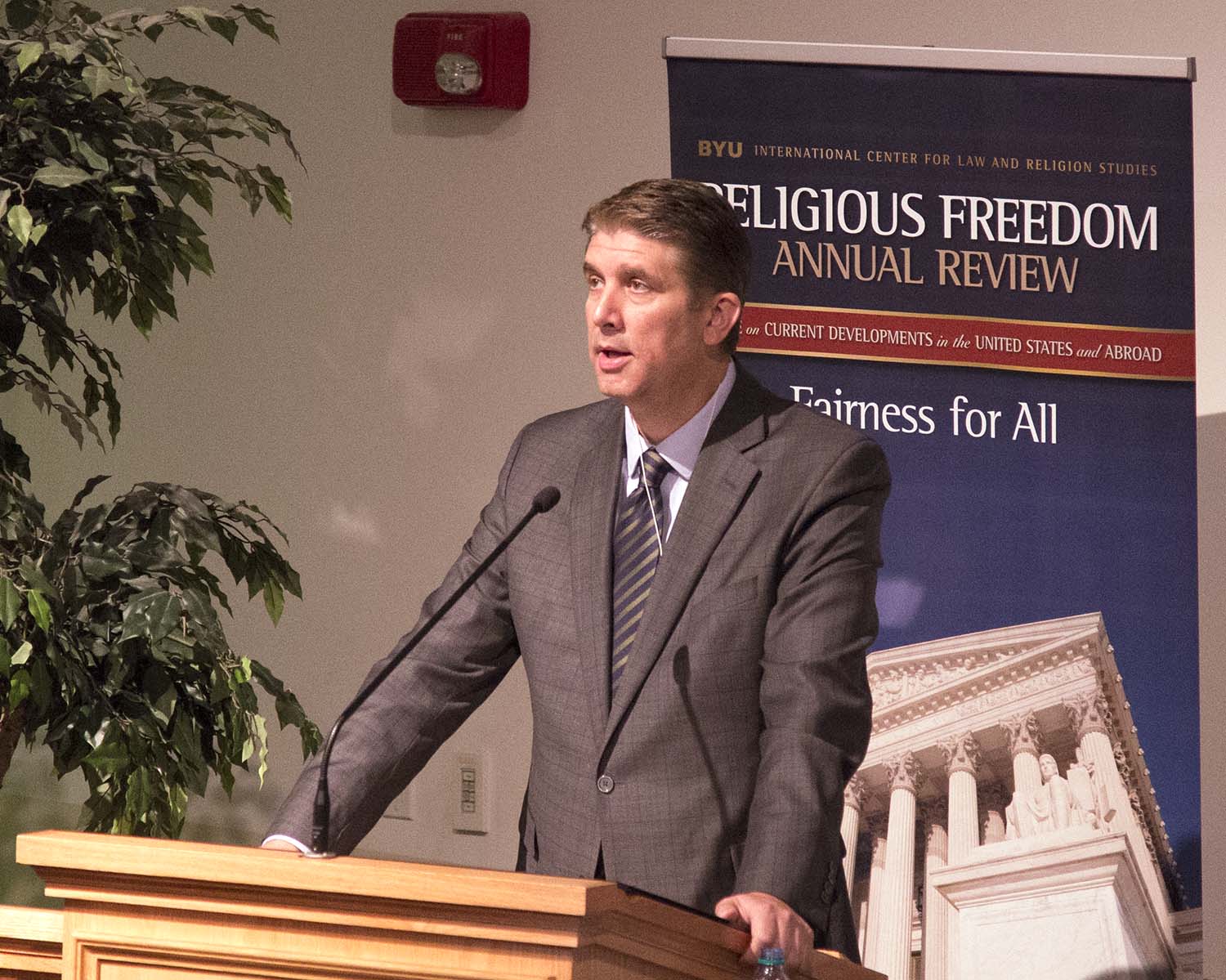Religious Freedom Annual Review 2016 Second Keynote Speaker: Religious Liberty v. Secularity: Is the American Founding Still Useful?

by Grace Hansen
Matthew S. Holland, president of Utah Valley University, kicked off the Annual Review as the second keynote speaker of the event on Thursday, 7 July 2016.
In his speech, entitled “Religious Liberty v. Secularity: Is the American Founding Still Useful?” Holland reminded the audience that “belief in God is no longer axiomatic.” Quoting statistics from Pew Research, he said, “There has been a marked increase in unaffiliated people, especially in the younger generation.” He then explained that for the first time in American history, one-third of adults under 30-years-old identify as religiously unaffiliated.
Despite the shift in national religious sentiment, Holland still believes the American founders and the principles they provided in the Constitution and Bill of Rights are still directly relevant to today’s population. “The founding becomes a sort of national Rorschach test,” Holland said. “With people seeing what they want.” He then elaborated on that point by outlining three ways in which the founders’ actions are still applicable: context, text, and character.
In an example later characterized as “surprising” by an audience member during the question and answer session, Holland explained that the New England Puritans provided a relevant, if narrow, example of context through successful separation of church and state. He illustrated the point by pointing out the Puritans’ progressive use of jury trials, governmental checks and balances, and written body of fundamental liberties.
“Religion,” Holland said, “is not too pointless or too poisonous to be given special protections in the law.” Holland continued by pointing to the specific text of the First Amendment, from its phrasing to its placement in the Bill of Rights. He explained that Congress considered 25 separate drafts of the religion clauses, with the final draft coming from a joint committee of the House and the Senate. Quoting Mike McConnell, Holland said, “The framers of our Bill of Rights thought that religious freedom deserved double barrel protection.” He stated that religious freedom was “America’s first liberty” and that it is a gift to be protected and preserved.
Holland closed by discussing character, specifically the character of a free people. “Together we must try to do what the best of the founding generation did,” Holland said. “They were not perfect, and we won’t be either. But surely we can try, as they seemed to try.” He then reminded the audience that the work they are committed to doing is “among the weightiest of our day.” Referencing John Jay, Holland concluded, “By all means, dismiss from your mind all useless apprehensions as well as all vain hopes. Let us calmly do our duty, and refer events to Providence.”